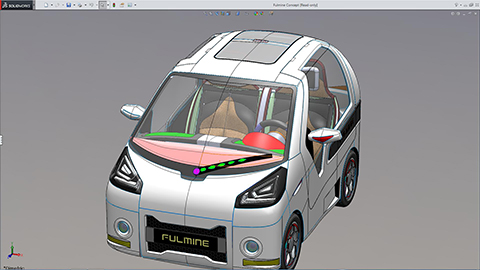
Intel’s cloud-based workstation trial is ready to go with SolidWorks and other CAD applications.
Intel has teamed up with graphics virtualisation specialist IMSCAD, virtualisation software developer Citrix and global data centre provider PhoenixNAP to offer architecture, engineering and manufacturing firms a fast track evaluation of cloud-based remote workstations.
Trials are available to firms of all types and sizes with ready access to a range of CAD software, including SolidWorks, Autodesk Inventor, Autodesk Revit, AutoCAD Civil 3D, and AutoCAD. Other software applications can be set up by request.
Intel provides the architectural heart of the solution, with ‘remote workstations’ that feature Intel Xeon E3-1500 v5 CPUs with integrated Intel Iris Pro graphics P580.
The systems are configured with Citrix XenServer, the first commercial hypervisor to support Intel Graphics Virtualization Technology (Intel GVT) capabilities, which allows graphics processors to be shared between multiple users.
Graphics virtualisation is only likely to be used for CAD applications with relatively low graphics processing requirements, such as AutoCAD.
For more graphics intensive applications like SolidWorks, the resources of each processor will likely be dedicated to a single designer or engineer.
IMSCAD provides tools and support to help customers optimise the solution to their individual needs and gauge its success in meeting those needs, while PhoenixNAP global data centres host the systems, applications, and data that drive the remote workstation visual experiences.
Cloud workstations offer multiple benefits, including no capital investment, the ability to access CAD programs from anywhere on any device, and protection of intellectual property (as sensitive data remains housed in a secure data centre).
Version control issues are also removed, and collaboration with distributed teams improved, with multiple designers, engineers, and others working off a single, central data set.






